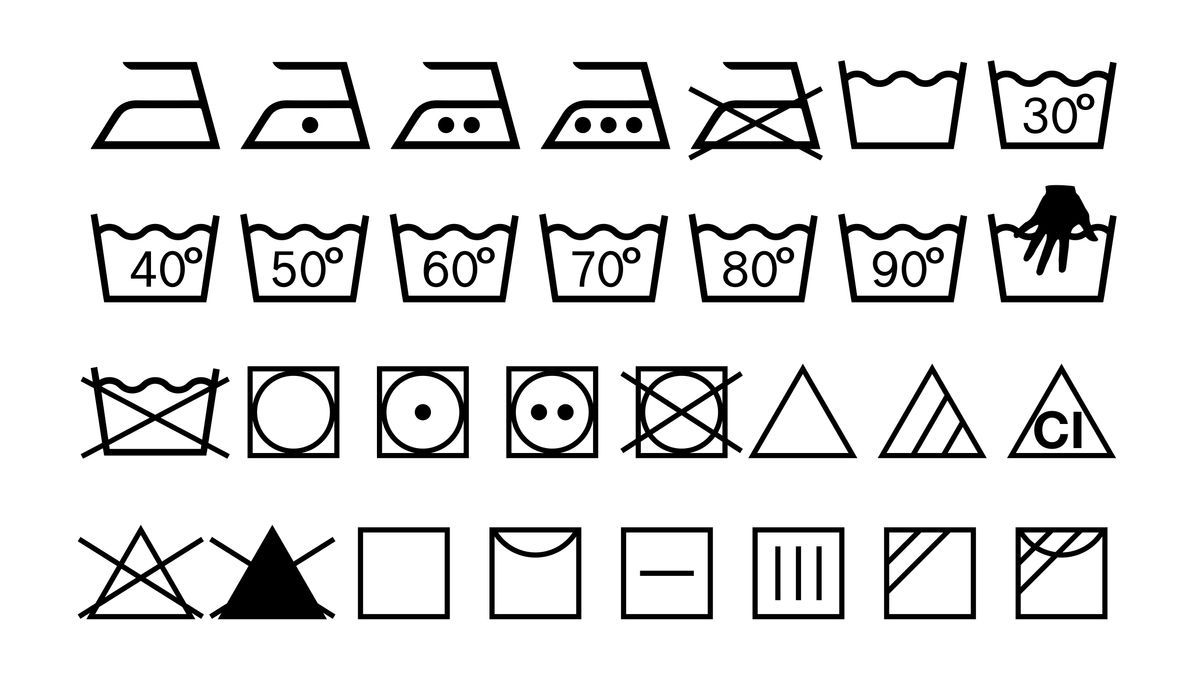
Every so often, a piece of information splits society into two parts: the people for whom it’s brand new and eye-opening, and those who can’t believe anyone didn’t know it in the first place.
Did you know, for example, that ketchup is meant to live in the refrigerator? Because two-fifths of us don’t. Barely anyone knows what the padlock icon in your URL bar means. Apparently, there are people who don’t even know what screensavers are for, despite the answer pretty literally being in the name.
And, if a spate of recent headlines are to be believed, now it’s the turn of laundry labels to blow some people’s minds while rolling the eyes of others. Apparently, people are only just realizing what the triangle symbol on clothes’ labels means.
Now, despite IFLScience being unable to find any actual examples of people amazedly discovering what this housekeeping hieroglyph means, it’s nevertheless completely possible that you may not speak laundry – and that can be a problem. “You risk destroying your clothes by not following the laundry care instructions,” Alicia Sokolowski, president and co-CEO of Aspen Clean, told Reader’s Digest back in February.
“What might happen if you put a dry-clean-only garment in a washing machine? The garment could shrink – not just a little, but significantly,” she explained. “Garments made of wool can shrink two to three sizes or more, and drapes can shrink to half their size.”
Luckily for us, however, the international laundry industry has figured out a standard code to help us wash our clothes without disaster. They even often turn up in the same order: there’s a washing tub, then the mysterious triangle, then an iron, then a circle, and finally a square.
Some of those are pretty self-evident. The washing tub symbol refers to, well, washing the garment: it tells you the maximum recommended temperature for a cycle using either dots – the more dots, the higher the temperature – or by flat-out giving you the temperature in numbers. You may also see lines underneath the tub, which indicates whether any special cycle needs to be used: “the more lines under the washtub, the more careful you should be,” fashion stylist Leena Alsulaiman told the Digest.
Similarly, the iron symbol is kind of obvious: it’s telling you whether you can iron a garment. Like the washing tub, it can be modified by one, two, or three dots to indicate the maximum temperature to use, while a bunch of dots splaying out underneath like steam means… well, it means you can steam the garment.
The other three symbols, however, are more cryptic. How would you guess, for example, that an empty circle means “this garment can be dry cleaned”? Or that a square with two diagonal lines in the top left corner means you should air dry it in the shade?
In fact, in comparison to the myriad variations of drying symbols – that’s what the square denotes, by the way; the most important thing to remember there is that a square with a circle inside means a garment can be tumble dried – the elusive triangle glyph is beautifully easy to decipher: it tells you whether an item can be bleached. See an empty triangle on the label? Go ahead and bleach that bad boy. Is there a triangle with a couple lines inside? Be careful: you can bleach it, but not with chlorine bleach.
And if you see a triangle – or indeed any of the symbols we’ve seen so far – with a big cross through it? Yeah, it means what you think. “When a symbol is crossed out,” Alsulaiman warned, “that’s your sign not to do that thing.”
So – laundry care labels: not as cryptic as you thought. Wash away!
Source Link: Apparently, Some Of You Don't Know What These Extremely Common Symbols Mean